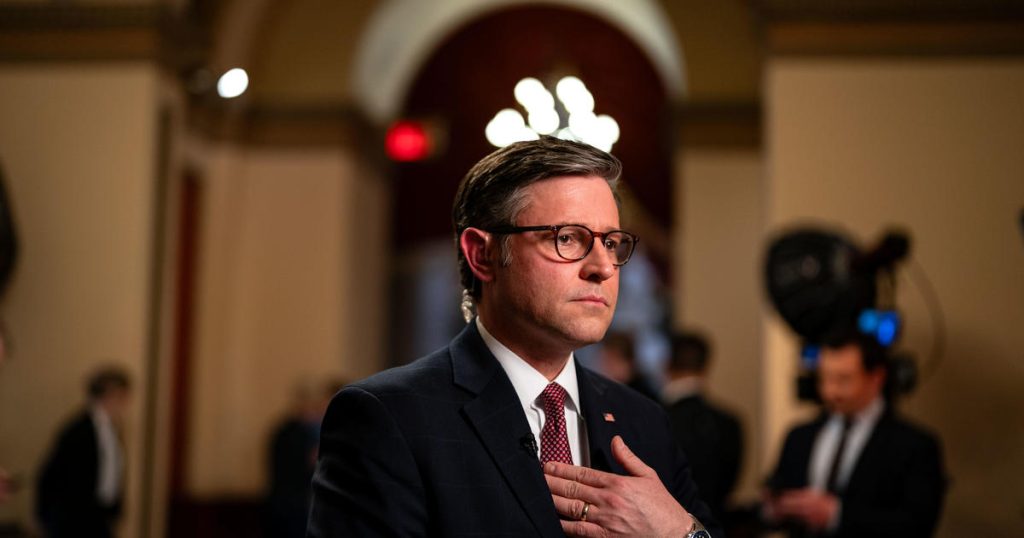Lawmakers in Washington are set to return to Capitol Hill after an extended August recess, with only three weeks to avert a government shutdown by the October 1st deadline. Given the limited time frame, it is likely that lawmakers will need to pass a short-term measure to keep the government funded, deferring the full-year funding discussion for a later date. House Republicans are considering a plan that involves a continuing resolution to fund the government through March 28, along with attaching a non-citizen voting bill that Democrats are unlikely to support. Speaker Mike Johnson has emphasized the importance of securing the federal election process by ensuring that only American citizens can participate in elections.
The proposed voting bill, known as the SAVE Act, aims to address illegal voting by requiring proof of citizenship to register to vote in federal elections. This move is supported by the House Freedom Caucus and Speaker Johnson, who view it as a crucial step to protect the integrity of American elections. However, the measure faces opposition from Democrats and the White House, who argue that it could hinder Americans’ ability to register to vote. Senate Majority Leader Chuck Schumer and other Democrats have criticized the GOP’s approach, warning that it could increase the likelihood of a government shutdown if a bipartisan solution is not reached.
The ongoing debate over government funding highlights the partisan divide in Congress, with Democrats and Republicans at odds over the best approach to avoid a shutdown. While a continuing resolution to temporarily fund the government is widely expected, the duration of the measure is still uncertain. Speaker Johnson has expressed a preference for avoiding an omnibus package and potentially postponing the funding deadline until the new year, which could benefit Republicans if they gain control of the White House or Senate. However, this strategy could lead to a contentious spending battle early in the next administration.
The current funding standoff is reminiscent of past budget negotiations that have culminated in high-stakes political showdowns. Last year, the funding deadline resulted in the ouster of former House Speaker Kevin McCarthy, underscoring the repercussions of failing to reach a consensus on government funding. As House Republicans weigh their options in the upcoming negotiations, there is already pushback from within the party. Some members, like Rep. Matt Rosendale, have criticized the proposed voting bill as a symbolic gesture that does not address the core issues surrounding government funding and deficit reduction.
The outcome of the government funding fight remains uncertain, with lawmakers facing pressure to find a compromise before the deadline. The debate over the SAVE Act and other contentious issues underscores the challenges of reaching consensus in a politically divided Congress. As the clock ticks down towards the October 1st deadline, the need for bipartisanship and strategic decision-making will be crucial in averting a government shutdown and ensuring the continued functioning of federal agencies. The coming weeks will be critical in determining the outcome of this high-stakes funding battle in Washington.


